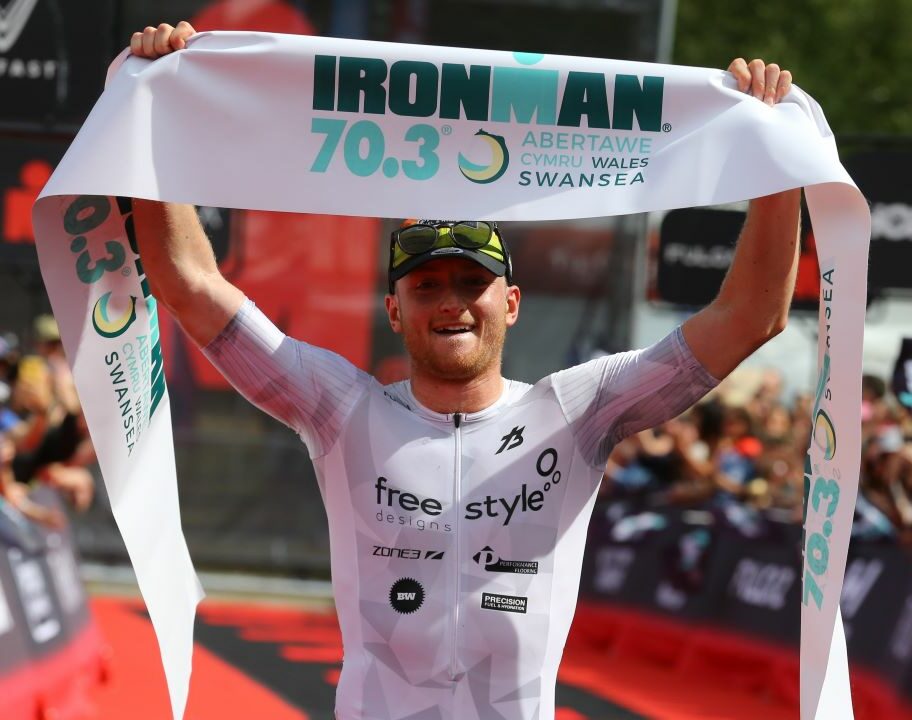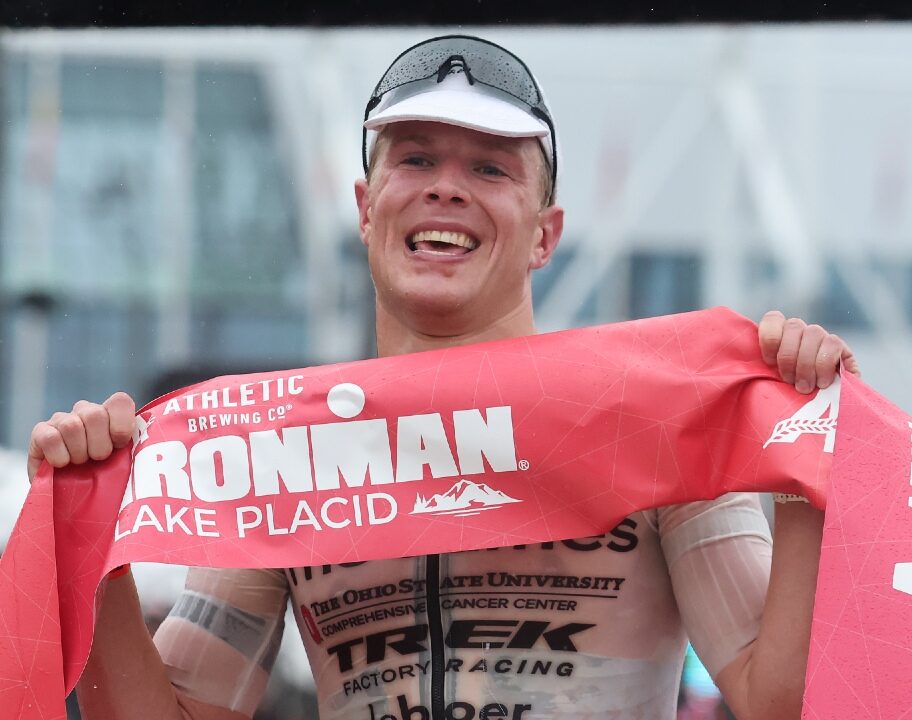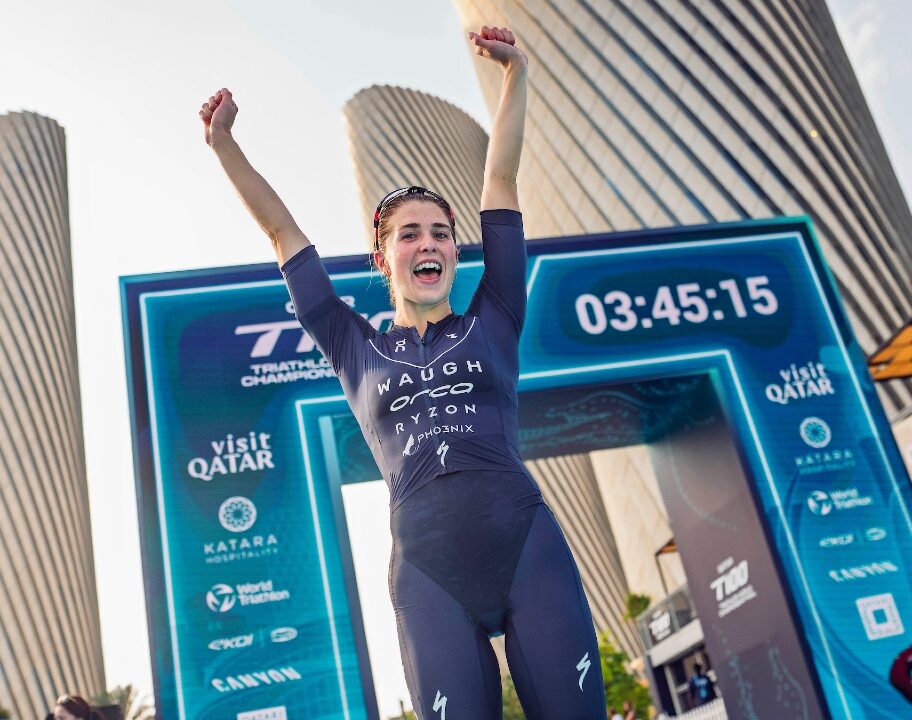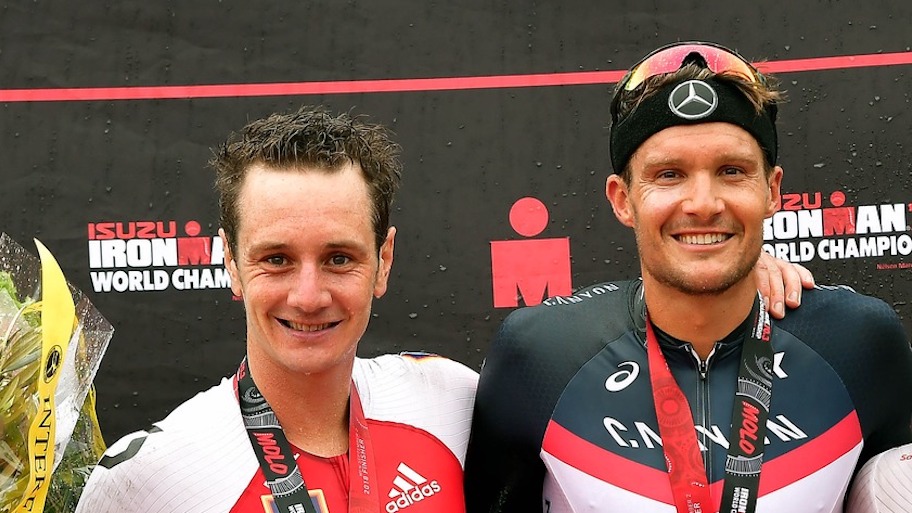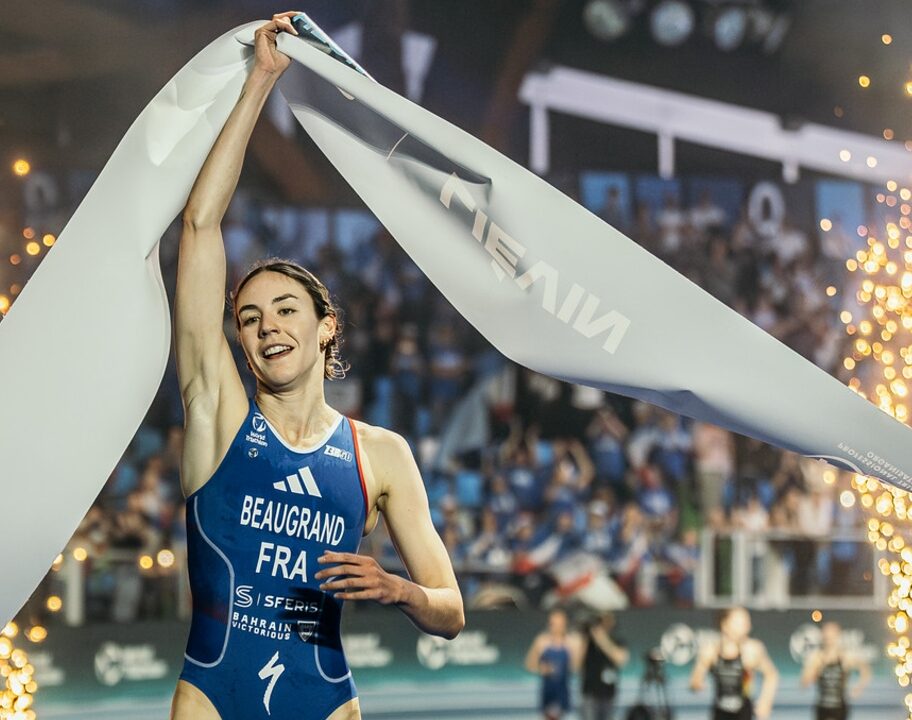Arguably the single most recognisable word in the history of British triathlon – Brownlee – has been a constant and high-profile presence at Olympic Games triathlon events since Beijing in 2008.
After three appearances and two memorable gold medals in London and Rio, Alistair Brownlee bowed out of Olympic competition when injury thwarted his last-ditch qualification attempt at WTCS Leeds in 2021. A torch was passed, and Alex Yee grabbed it and ran (very fast) with it, to gold and silver in Tokyo.
In the early hours of Saturday morning, UK-time, younger brother Jonny Brownlee will be racing at WTCS Yokohama in Japan, with eyes on producing a performance that will mark him out as the man to join the already selected Yee in the French capital later this summer. He’s seeking a fourth Games appearance – and a fourth medal – to add to the gold, silver and bronze he has already collected.
Yokohama looks set to be a very, very important race for Jonny.
Could this be the end of an (Olympic) era, or another chapter in the incredible Brownlee legacy?
One shot at qualification for Paris 2024
First up, there is little room for manoeuvre as far as the British men’s Olympic triathlon team is concerned. I wrote in-depth about the selection process and policy back in January 2023, should you wish to revisit the minutiae.
One of the ‘to be confirmed’ elements was how many places would be available? With a Mixed Team Relay slot already qualified back in 2022, that meant two men and two women minimum were already guaranteed.
A nation can earn a third quota place if they end the Olympic Qualifying Rankings period (which ends 27th May 2024) with a minimum of three athletes within the top 30. That’s fait accompli for the British women, who currently boast four inside the top 20 – but the picture is not so rosy for the men.

While the aforementioned Yee is riding high at number three, Barclay Izzard (#50) is our next highest ranked athlete, and with only two major WTCS races before that window closes, there is effectively zero chance of securing that third spot. To use another French phrase, it’s a case of deja vu to where we were three years ago, as British Triathlon’s Performance Director, Mike Cavendish, explained to me recently:
“Barclay has been injured, so we needed him and Jonny (#53 currently) to have a good start to the year, and with Abu Dhabi going, that was the final nail in the coffin. It’s a source of continual frustration for us. You know, Sam [Ed. Dickinson], Barclay, Jonny – Hugo [Ed. Milner] it was just a bit too late for – they are all good enough to be consistent top-30, no issue whatsoever, but they have just not been healthy enough.
“Sadly, it was the same challenge around Tokyo. For whatever reason at the moment, we just cannot keep them healthy and robust enough to compete consistently.”
As Eminem might say, You only get one shot… or in this case, one slot.
Where’s the form at?
Ultimately, that’s really the key question. While the days of Jonny – or indeed anyone – going 30/40+ races in a row and never missing a single podium are now history, the reality is that consistency of performance has been an issue in recent years. 34th, 17th, 51st and 34th in his four biggest races in 2023 is not reflective of one of the most successful short-course athletes of all-time. By his own admission, 2023 was a “pretty awful season“.
While it’s been difficult to watch, nobody will have been more frustrated than Jonny himself, as Super League performances in London and Toulouse have shown that his ability is still there over that short format.
This isn’t totally new territory – and Jonny has bounced back before. A World Triathlon Cup win in Arzachena (2021) and a WTCS silver in Cagliari (2022) – his last podium at WTCS level – all came at times when confidence was needed or injuries had be overcome.
Yamashita Park on Saturday would be a great time and place to prove, once again, that form is temporary and class is permanent.
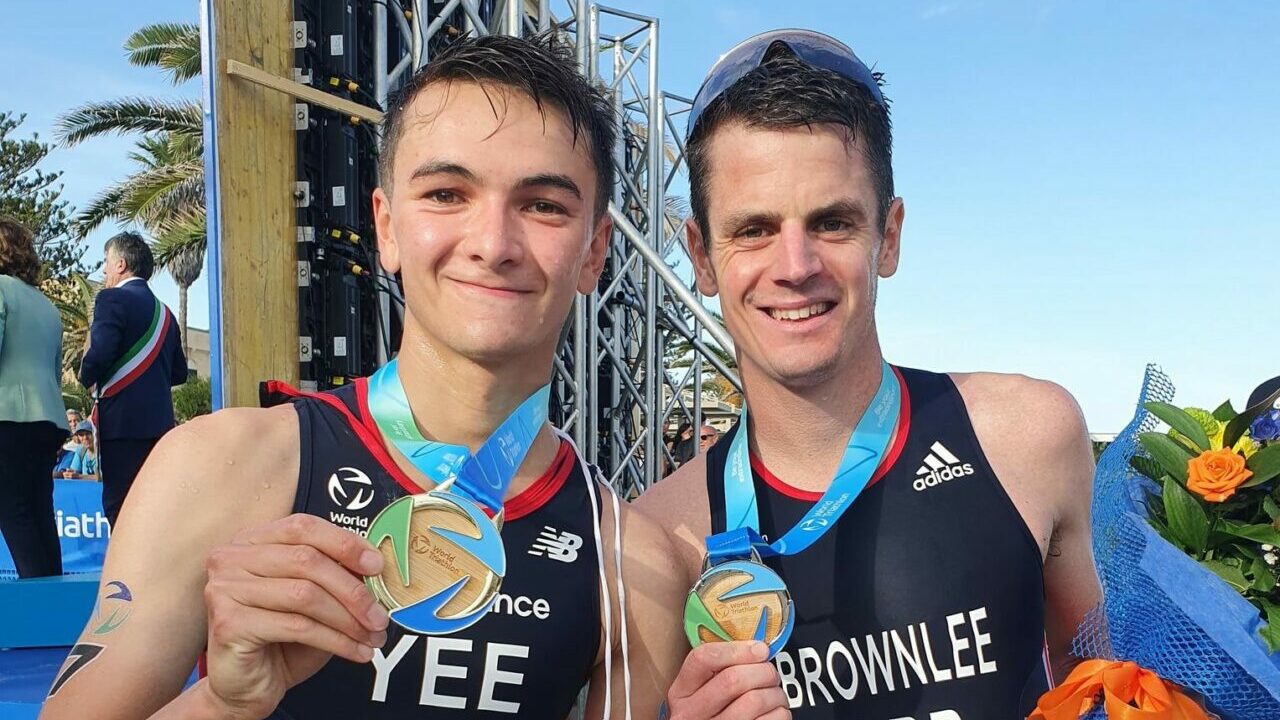
The Newbie – Hugo Milner
One of the interesting aspects of this weekend’s race in Yokohama is the presence of Hugo Milner, as the only other British man in the field. Winner of a World Triathlon Cup event in 2023 – coincidentally, also in Japan – and adding an eye-catching success in March this year at European Cup level in Quarteira, the fast-running Milner is a relatively late addition to the field, via the waitlist process.
That was something he had his hopes on when I interviewed him recently, and despite describing himself as “10 years behind” in experience terms. he thinks the race could suit him. Now, this will be his first ever WTCS start, and so making any predictions on how he might perform is verging on lottery territory. But, in the absence of the run legs of both Yee and Wilde, IF he can find himself remotely close to the front group at T2, he’s someone to watch.
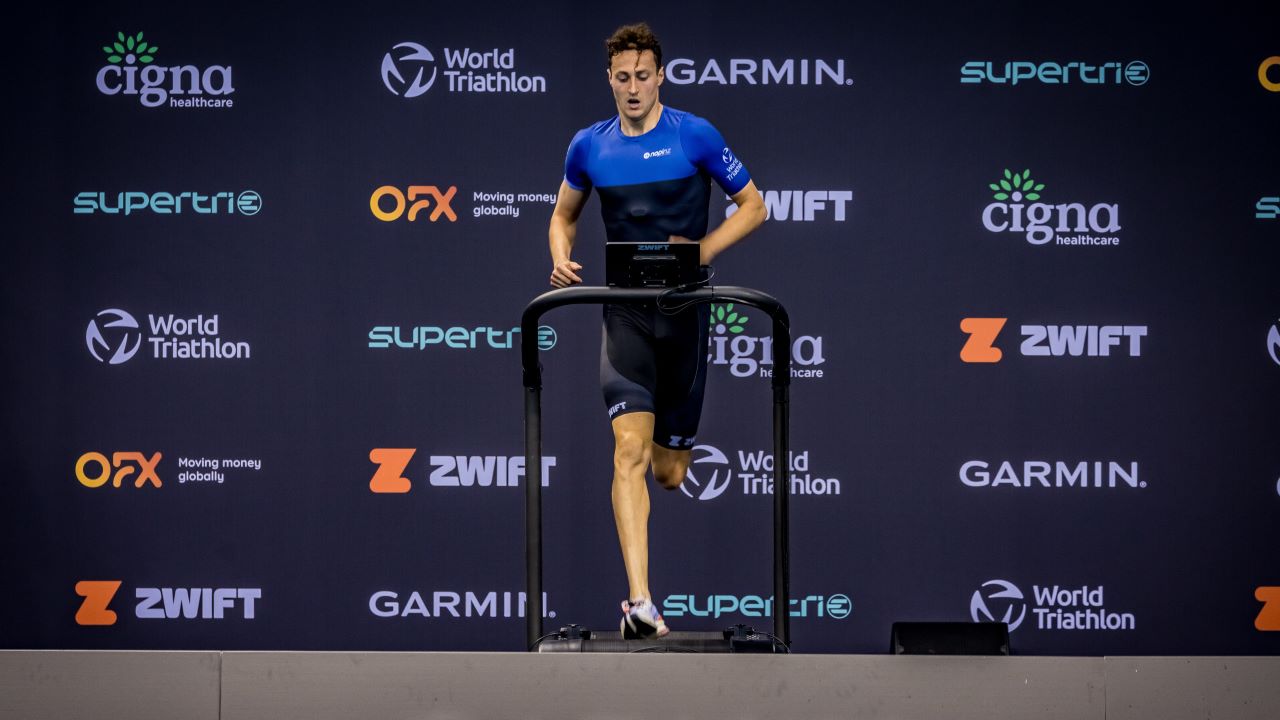
Rounding back to that British Triathlon selection policy, the next priority that selectors will assess is whether there is an realistic individual medal contender. As of today – Alex Yee aside – none of the potential names for selection are clear candidates on that assessment basis.
While historically it’s likely very long odds on a WTCS debut, could a flyer by the young gun from Derby catapult him into Olympic selection talk? On the flipside, leaving the Harvard graduate in his wake would represent a strong case that a grand master is not ready to hand over to the apprentice, just yet…
A Cagliari no-go for Jonny
What adds extra incentive to this race for Brownlee is an event that he’s NOT going to be at in two weeks’ time.
The final WTCS race of the Olympic qualification period will take place in Cagliari, Italy, two weeks after Yokohama on May 25. Cagliari – like Yokohama – will not provide a definitive automatic qualification route of the ‘get a podium and you get selected’ type.
However… it has been nominated by British Triathlon as the highest priority race within their discretionary nominations process for the individual event in Paris. Jonny will not be able to race in Sardinia however, since as his World Triathlon Ranking (which is different from Olympic Qualification Ranking), has fallen to, at the time of writing, #94. It’s not an exact science, but Mike Cavendish explained that:
“If you are generally somewhere in the region of 65 to 70-ish, particularly with two Olympic distances back-to-back, you are probably going to roll on to the start list…. Jonny will definitely only be doing Yokohama.”
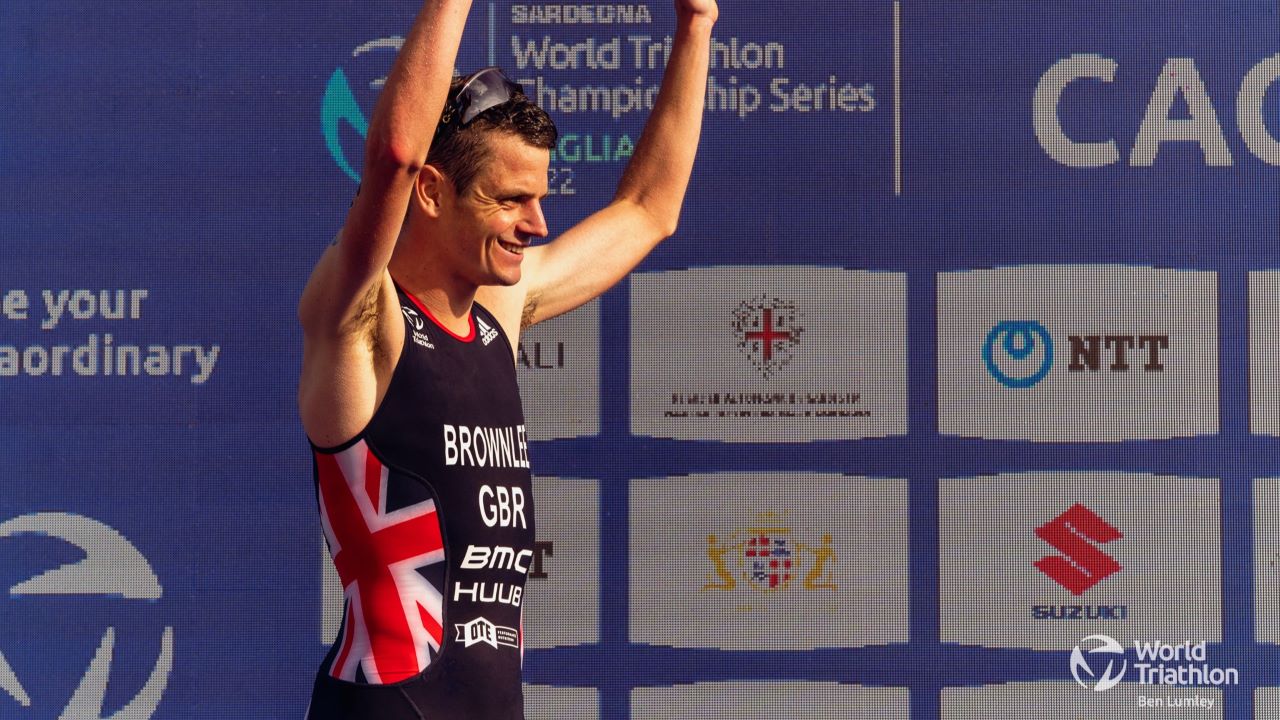
Clearly then, not appearing in Cagliari places additional focus on his form and performance in Yokohama.
Relay goals
As the defending Mixed Team Relay gold medallists from that incredible race in Tokyo, the Brits will certainly have eyes on returning to the podium – at the very least – this summer. Indeed, it’s explicitly stated in the selection policy.
The primary aim of this Policy is to maximise medal opportunities in BOTH the individual and Mixed Relay events in Paris
It was Jonny’s performance at Odaiba Marine Park which actually changed his mind and convinced him to push on for another Olympic cycle. After the fastest split (and run) that day, he told us, “I had a change of heart after that relay in Tokyo.”
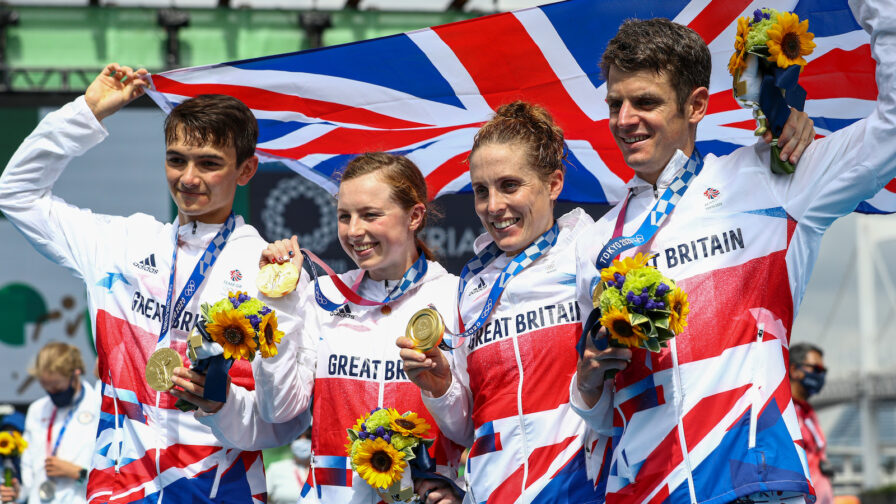
Interestingly, he’s not started another relay since, with circumstances creating major problems for athletes aiming to show their form in that format, and selectors aiming to assess that.
Mike Cavendish outlined the impacts from his perspective.
“Abu Dhabi cancellation was… unhelpful, I would say, to put it politely. We had flown athletes out, Jonny Brownlee being one of them, who had specifically come out to do the relay. He wasn’t on the individual start list, he’d targeted that relay because he still hasn’t done one since Tokyo.
“It just means that the normal order of things, having Abu Dhabi taken out, it gives us in particular for the relay a hole. Athletes that we had targeted for the relay in Abu Dhabi, we hadn’t seen do specific legs, and now we don’t have that data… and so for that selection meeting in June, we are going to be using a lot more subjectivity than otherwise we might want.”
Abu Dhabi was just the most recent in a series of misfortunes for the top level relay events…
“Paris was a duathlon, Hamburg World Champs last year unfortunately Connor [Ed. Bentley] got injured on leg one and so we were out of the race. Montreal got cancelled. We’ve been decimated in terms of relay opportunities… and Abu Dhabi was just another version of that.”
From a Relay perspective, those strong Super League performances will likely be an asset in this regard for Brownlee during selection discussions, who told us in late 2023:
I only want to go to the Olympics if I can genuinely be competitive – and I’ve kind of doubted myself… Super League has given me that belief, because I actually think I should be better at Olympic distance than the Super League format. So if I can do it there, then I should be able to do it in the World Series
One more chance?
Such has been the impact of the race cancellations and format changes above, British Triathlon have actually pushed back their final selection meeting a week, in anticipation of some difficult decision making. Mike Cavendish explained the logic here:
“After Cagliari, we’ve purposely given ourselves another week because there’s a super sprint in Poland, there’s a sprint in Vigo in Spain. So if we need to see people and say, right, you’ve just not been in the race enough in Yokohama or Cagliari, we might say to Sam [Ed. Dickinson] or Jonny or Hugo or whoever it might be, right you need to go there and do ‘X’ to help us, otherwise we are not quite guessing, but we have a limited amount of information, because we’ve had so few relays.”
In anticipation of that, Brownlee is currently on the start-lists for Europe Triathlon Cup Olsytyn (May 25, Sprint) and Europe Triathlon Cup Kielce (June 2, Super Sprint) – both in Poland – but will no doubt want to have have made his claim for a fourth Olympic selection clear this Saturday.
Can Jonny Brownlee be Big in Japan this weekend?
If he wants to go to Paris, he might need to be.









